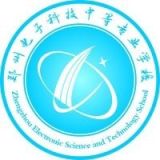法学教师在学术研究中如何避免偏见?

Answer:
1. Self-reflection:
- Conduct regular self-assessments to identify potential biases and blind spots.
- Examine your own values, beliefs, and assumptions.
- Seek feedback from others to gain a diverse perspective.
2. Critical thinking:
- Question assumptions and challenge the underlying evidence.
- Analyze cases from multiple angles to identify alternative perspectives.
- Avoid accepting information at face value.
3. Objectivity:
- Minimize personal biases and avoid allowing emotions or opinions to influence your judgments.
- Use objective criteria and data to evaluate evidence.
- Avoid using personal experiences or anecdotes in your analysis.
4. Transparency:
- Be open about your research process and methodology.
- Disclose any potential biases or limitations.
- Seek feedback on your research findings and be willing to revise your conclusions accordingly.
5. Collaboration:
- Engage in discussions with diverse colleagues and experts.
- Seek feedback on your research and be open to learning from others.
- Foster an environment of respect and open communication.
6. Continuous learning:
- Stay updated on research in your field and engage in ongoing learning opportunities.
- Seek out books, articles, and conferences on bias and critical thinking.
- Reflect on your own biases and how they might influence your research.
7. Self-awareness:
- Recognize that biases can be deeply ingrained and may require significant effort to overcome.
- Be patient with yourself and celebrate your progress in reducing bias.
- Seek support from mentors or colleagues who can provide guidance and encouragement.























































































